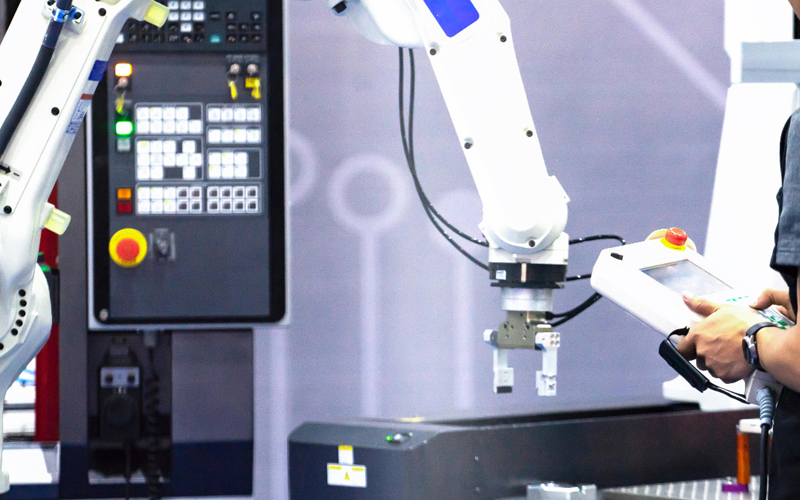Robots are taking over the world; thankfully, they are the good ones! The traditional ways of business management are on their way out as businesses reap the benefits of technology’s foray into streamlining business functions. The growing use of robotic process automation (RPA) in business has revolutionised the simplification and streamlining of operations management worldwide. Even the RPA software market forecast expects growth of 23.4% CAGR to reach $43.52 billion by 2029 as the adoption of RPA for business increases rapidly.
Process automation has enhanced the productivity and efficiency of the operations team with the help of RPA. A study revealed that RPA in operations could reduce 70% of the cost of a full-time employee, thus offering quick and high ROI and cost savings. When implemented effectively, RPA helps businesses become much more productive, giving employees the time to focus on more strategic and creative tasks.
From customer support, self-service technology, and sales management for front-office operations to automating data processing and finance and HR tasks for the back office, deploying RPA streamlines processes and improves coordination between the front- and back-office teams.
RPA benefits for the front office
The front office is a crucial revenue-generating and customer-facing part of the business. RPA can simplify front-office functions and improve efficiency allowing employees to focus on revenue-generating activities rather than routine and repetitive tasks.
- RPA can work as the first line of communication with customers through chatbots. By merging RPA with NLP and AI, bots can process even complex queries, thus reducing wait times at contact centres.
- By automating CRM processes, well-deployed RPA and AI can provide a 360-degree view of a customer profile, making it easier to provide personalised customer experiences.
- A large chunk of valuable time of sales representatives is wasted in carrying out non-revenue-related tasks. RPA can free up this time and help them focus more on pursuing and converting leads.
- Unattended RPA allows direct user interaction, thus eliminating the human interaction. It is widely used for OTP generation and account verification purposes.
- The speed of RPA bots aid in faster data queries. It enables high-volume inquiry transactions at a quicker, error-free rate. It saves time and resources for the business.
RPA benefits for the back office
As the backbone of the business, the back office plans, monitors, and improves business processes. While supporting the front end, back-office functions involve extensive repetitive tasks that RPA can efficiently address. Primarily created to help back-office functions in finance, RPA for businesses today focuses on rule-based programmes and artificial intelligence that can reduce errors, save time, and improve productivity.
- Data processing is done accurately and continuously, providing back-end functions with an uninterrupted resource and data pool for further use and analysis.
- RPA supports the speedy reconciliation of back-end tasks. It helps discover and eliminate mismatches in data sets and realise massive savings from solving issues such as poor master data management.
- Once a suitable logic is programmed into the RPA, it can work tirelessly and provide error-free results. It improves the accuracy of tasks, thus enhancing overall productivity.
- Domains such as healthcare and insurance depend on well-deployed RPA to speed up audits and reviews. Moreover, once programmed, RPAs help in compliance and throw up fewer issues. By leaving a detailed audit trail, RPA helps manage sensitive data and adds another layer of security for various use cases.
- In their digital transformation journey, businesses can take advantage of RPA for data migration, a tedious and time-consuming activity that is error prone. Moving from legacy systems to modern ones can be streamlined with the help of RPA.
For organisations on the digital transformation journey, agility is key in responding to a rapidly changing technology and business landscape. Now more than ever, it is crucial to deliver and exceed organisational expectations with a robust digital mindset backed by innovation. Enabling businesses to sense, learn, respond, and evolve like living organisms will be imperative for business excellence. A comprehensive yet modular suite of services is doing precisely that. Equipping organisations with intuitive decision-making automatically at scale, actionable insights based on real-time solutions, anytime/anywhere experience, and in-depth data visibility across functions leading to hyper-productivity, Live Enterprise is building connected organisations that are innovating collaboratively for the future.
how can Infosys BPM help?
Built with thousands of hours of learning and testing, Infosys BPM has created a platform and technology-agnostic approach to automation by combining RPA with AI. This intelligent process automation works in complex client environments and saves thousands of person-hours, exponential productivity benefits, and massive savings.







